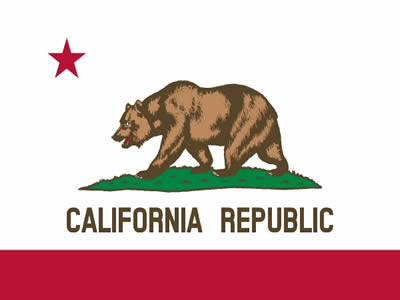Amaya Gaming announced early last month that it would be buying The Rational Group, parent company of well-known online poker provider PokerStars. Amaya Gaming has secured more than $1 billion in financing to guarantee the acquisition, which has been finalized. The move was seen as a way to allow PokerStars reentry into the US marketplace, after the company’s embarrassing and legally forced exit in 2011. David Baazov is the CEO and also President of Amaya, and pointedly stated in a recent interview that his company is definitely positioning itself to move into the legal online poker and gambling marketplace in the United States. He also pointed out that his company is doing everything it can as a proponent of legal online gambling in California.
Amaya Currently In Talks With New Jersey For Online Gambling Entry
With by far the largest population of any US state, California is a twinkle in the eye of any online gambling company. And Baazov said that he is already speaking with Division of Gaming Enforcement officers in New Jersey about entering that network. The only holdup at this time is the “bad actor” clause which hangs over PokerStars’ head. Past charges by the Department of Justice, which have been handled to everyone’s agreement, currently do not allow the company to operate in the Nevada and New Jersey online gamblingmarkets. But many industry analysts believe the Amaya relationship will give PokerStars the much-needed respect and integrity required for it to return to the US online gambling scene.
Gaming Attorney Says Bad Actor Clause “Unconstitutional”
That is what makes California even a more important legal entry point for Amaya. If Nevada and New Jersey do decide to hold the previous DOJ indictments over PokerStars’ head, California’s acceptance would make of those two underpopulated states immaterial. Along with Pennsylvania, The Golden State is consistently mentioned as the next possible US online gambling industry player. A respected gaming law attorney, Harvard Law Professor Laurence H. Tribe, believes that the bad actor clause employed by states like Nevada and New Jersey is unconstitutional because, in his opinion and others, it “violates the Fifth Amendment.” When California throws wide the virtual doors on an online gambling industry, Amaya and PokerStars would probably seek a Supreme Court opinion on the matter to get the bad actor clause removed if need be.
California Indian Tribes Prefer PokerStars Stay Away
There are currently several powerful Indian tribes in California which also agree that any company which has violated US Internet gambling laws in the past should be barred from a future online gaming network. However, when a company like Amaya, one of the largest online gaming providers in the world, spends $1 billion to purchase another firm with a sullied reputation, you have to believe they have done their homework. Amaya would certainly have not gotten involved with PokerStars if the company didn’t believe in a fruitful future and US virtual gambling entry point.
Climate Is Pro-Online Gambling In California Currently
At this time, two pieces of online gambling legislation await votes in California. Both were presented by California lawmakers. There is also a proposal by a collection of state and federally recognized Indian tribal groups proposing legal California online poker. And recently, a relatively small Indian tribe opened an Internet poker room in California for real money gambling. All of these efforts indicate a positive situation for online gambling in the USA to claim the Golden State as its next entrant. Should California join New Jersey, Delaware and Nevada in the growing United States online gambling industry, Amaya is positioning itself to make a positive return on its $1 billion PokerStars investment.

